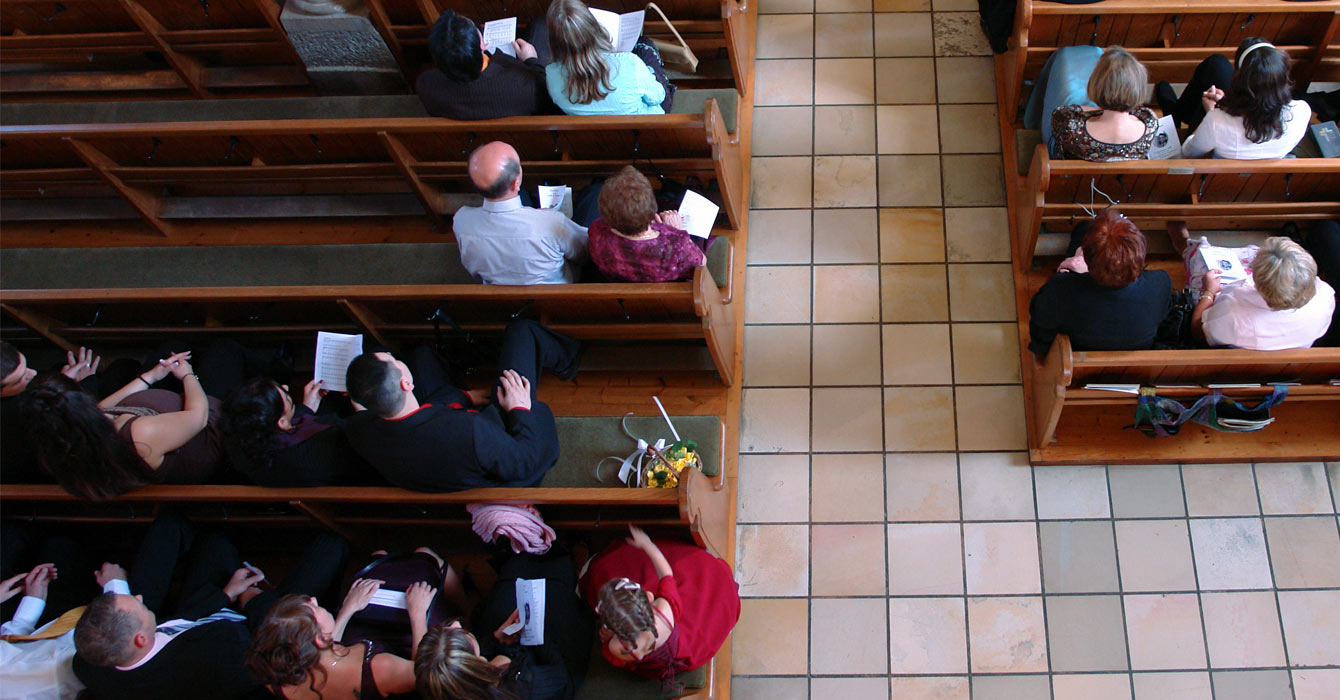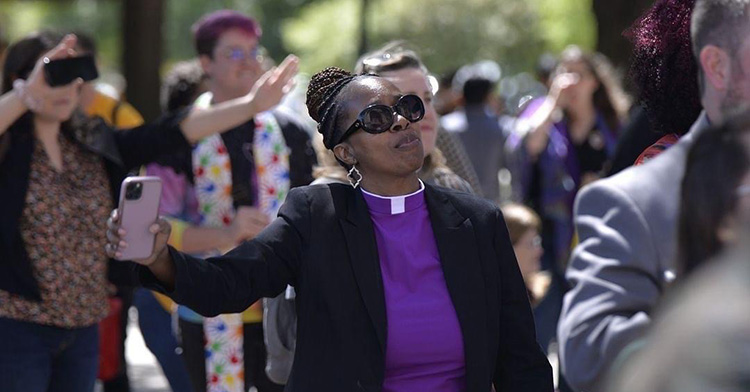With the nation’s heightened awareness about mental health, congregational leaders have been regularly called upon to support individuals, families and communities experiencing challenges.
But how are pastors themselves faring with mental health and overall wellness?
That was among the questions recently posed by researchers involved in Exploring the Pandemic Impact on Congregations: Innovation Amidst and Beyond COVID-19, a five-year research project funded by Lilly Endowment Inc.
“Every time we do a survey, we’re finding that congregations are not in the same spot where they were the previous time,” said Scott Thumma, the director of the Hartford Institute for Religion Research, which is conducting the project. “Things are continuing to change in both predictable and unpredictable ways.”
When earlier research revealed a high rate of pastors considering leaving the ministry, Thumma said, the team decided to delve deeper into the underlying reasons.
For the latest study, the team explored survey data collected in fall 2023 from about 1,700 clergy leaders. Participants were asked, on a scale of zero to 10, how they rated their spiritual health, physical health, mental health, relational health and financial health.
They also were asked to rate their degree of agreement with phrases like “I am satisfied with life as a whole these days,” “I understand my purpose in life,” “I often feel lonely,” “I feel connected to the broader community around me,” and “This congregation is a good match for my gifts and talents.”
At the conclusion of the study, an overall health and wellness score was calculated for each respondent, and researchers grouped the scores into four broad categories. About 50% of pastors scored within the “good” category, 16% “great,” 27% “fair,” and 7% “poor.”
Those findings, compared with data from a similar study — Harvard’s Human Flourishing Project — suggest that pastors are doing slightly better than the general public, Thumma said. On the measures included in both studies, the average well-being score for clergy was 7.6 out of 10, compared with 6.9 out of 10 for the general public.
When it came to the statement “I understand my purpose in life,” clergy leaders’ perception of their well-being was significantly higher than that of the general public. On that item, clergy had a mean of 8.6 out of 10, compared with 6.8 for the general public — a difference of nearly 2 points.
Relational wellness was the one area in which clergy scored lower than the general public, but the scores were relatively high for both, and the difference was only one-tenth of a point. Still, about half of clergy surveyed said they are frequently or often lonely (an item not included in the survey of the general public).
“We found clergy were looking healthier than the general community,” Thumma said. “On one hand, there’s discontentment. And it’s clear some clergy are clearly suffering. But, overall, clergy are reasonably healthy, with the exception of a sense of loneliness. The profession can be a lonely experience. In some denominations, they expect you not to develop too deep relationships with your people.”
The Rev. Anna Tew, the pastor of Our Savior’s Lutheran Church in South Hadley, Massachusetts, who was among the clergy interviewed as part of the project, said she could relate to some of the research findings.
Tew experienced some of the challenges that many pastors faced in the midst of the pandemic, including a decline in church attendance and a significant drop in volunteerism.
“I went through my own journey alongside the rest of the public,” Tew said. “I asked myself, ‘Is this church thing worth it, and do I want to keep doing it?’ I was one of the pastors who had really considered leaving the ministry.”
As the months passed, Tew said, she reflected on the positive aspects of her role. “I was able to see the value of ministry. It’s a great career if you have a congregation that is supportive, which I do,” she said.
“The part of the research that reflects longer tenures do make happier pastors is borne out in my experience,” Tew said.
Engaging in clergy peer groups was found to be a positive factor in clergy wellness. Sabbaticals and taking days off did not seem to influence pastors’ overall health and wellness as much as participating in a peer group and using mental health resources.
However, the dynamics of a congregation still impact a clergy leader’s health and wellness. The study found that a congregation’s willingness to change, sense of spiritual vitality, clarity in mission and level of conflict are associated with the health and wellness of its leader.
“There are so many different dynamics that could cause a pastor to think about leaving the ministry,” said Thumma, who noted that congregational support, mission alignment and the pastor’s own commitment to wellness can contribute to the decision about staying in the ministry.
“It’s not a simple fix,” he added. “We can’t say it’s the congregation’s fault that a pastor is leaving the ministry or the fault of the pastor who may have wellness challenges or discontentment,” he said. “It’s a social dynamic, and social dynamics are far more complex than that.”


























